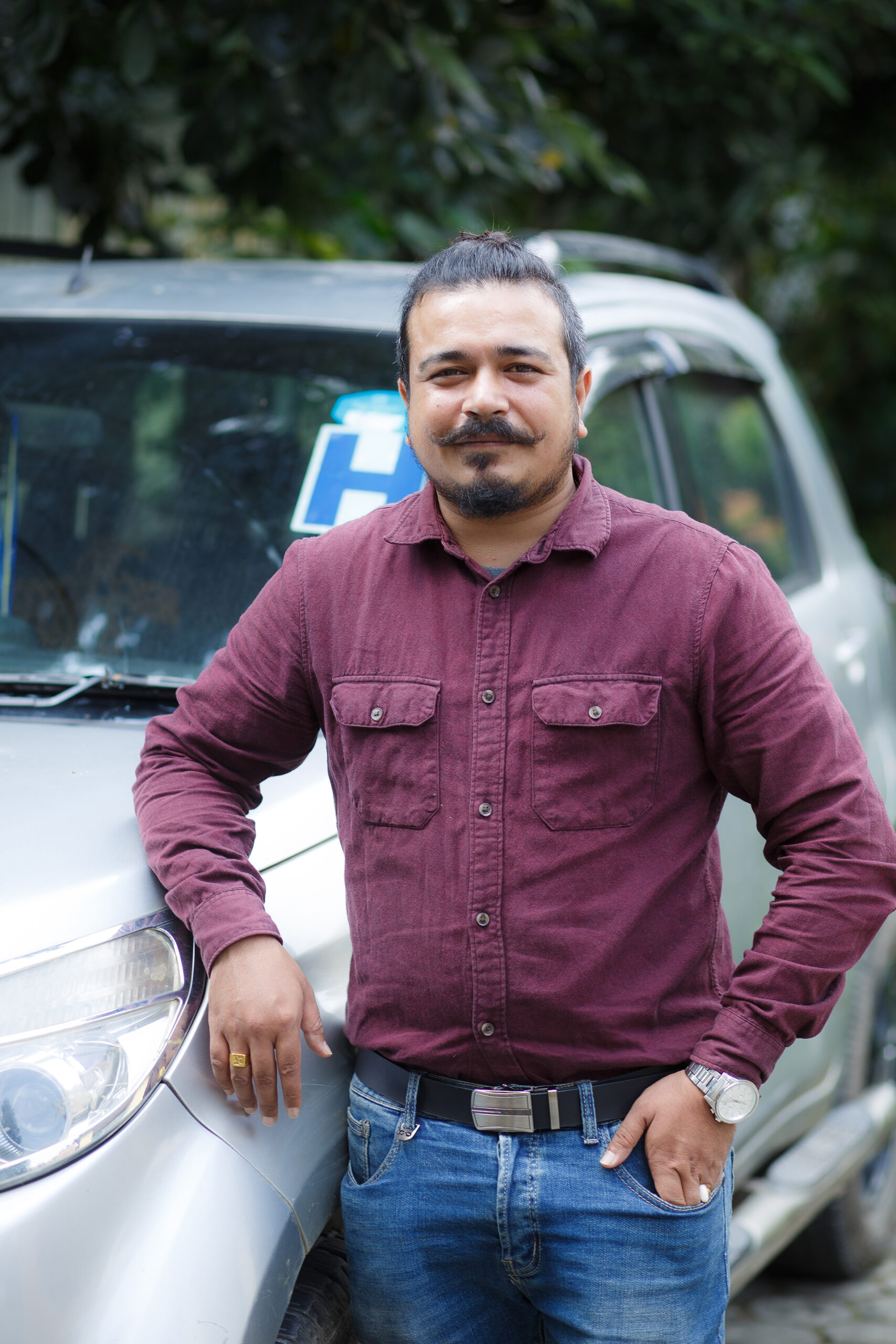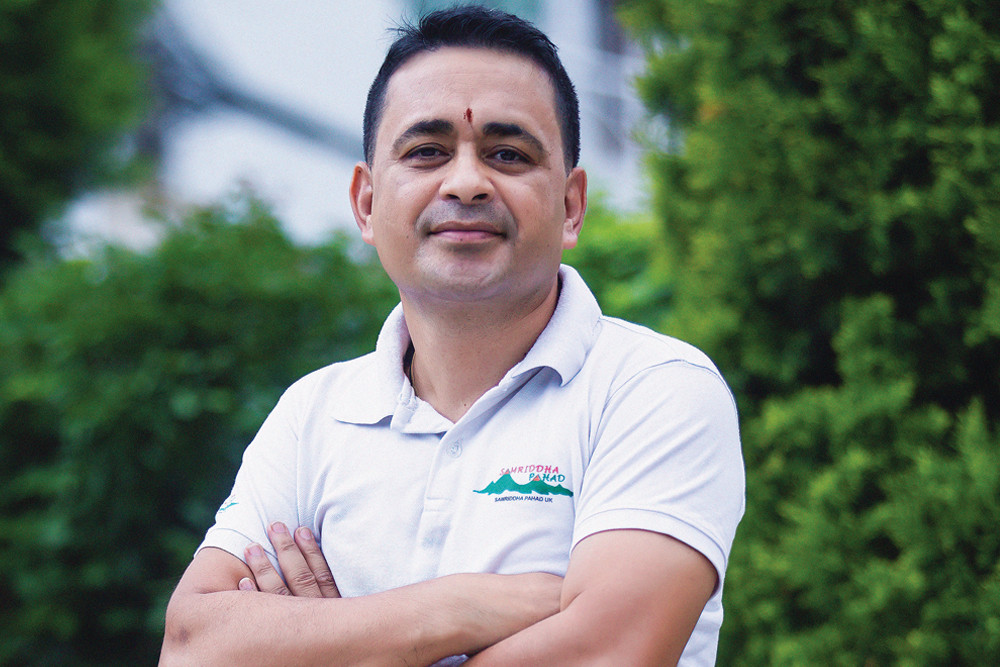
Operations Manager of DV Excellus, Deepak Ratna Tuladhar has worked as research fellow for Ministry of Agriculture on improving supply chain of local products to markets. He also made policy recommendations for the need for structural supply chains at the local level with formalisation and formalisation structure of key stakeholders.
An MBA graduate in Agribusiness scoring a perfect 4 GPA from University of Westcliffe, he has an undergraduate degree from University of West London in Human Resource Management and is also a certified accounting technician.
He has also worked with the District Agriculture Development Office, Federation of Nepalese Chambers of Commerce and Industry and Small and Medium Enterprises on private sector actor strengthening, business to business development, producer group strengthening, investment-financial analysis and value chain financing (access to finance).
Eversince his return to Nepal, he has been focused on the country’s agriculture eco system in multiple roles: as an entrepreneur, researcher, consultant, and as CEO. He has travelled throughout the country to understand the socio-economic status and local and rural production and business practices.
“I have had the privilege to initiate the implementation process of KISAN II access to market with Kheti. Further my last two years of continuous research, study and learning in MBA Agribusiness adds to my dedication on a personal level,” he shares.
Innovating business practices excites him. He is an adjunct faculty member for subjects like English, Business Communication, Enterprise Management and Critical Thinking in Management in business schools based in Kathmandu. As a researcher, he has conducted in-depth analysis of marketable products and their commercial viability, and structured potential training and development programmes required for small businesses in major districts of the western region like Rukum, Rolpa, Salyan, Surkhet, Jajarkot and Dang.
Excerpts of an interview with Dibesh Dangol of B360 on what leadership means to Deepak Ratna Tuladhar.

How do you define leadership? What do you think are the three basic traits that a leader should possess?
I believe leadership to be a process. I do not proclaim someone to have been born with the traits. I do acknowledge someone who has been a follower for a major portion of life as it is. Personally, the urge of sharing, connecting and developing makes me who I am i.e. not perfect but on the right path to lead someday. There are three things that portray my nature and personality in leadership: dedication to what I do, how I do it and when. My 4.0 GPA out of 4.0 in MBA with 100 percent attendance is a reflection of my dedication. Another crucial leadership trait that I learned is unlearning to learn. We tend to bind our awareness with what we already know and weigh the thoughts and perceptions of others. A leader I believe should have that attitude where he learns and tries to see things from the other’s perspective. Lastly, I believe empathy to be a driver of leadership. Having the ability to feel for others, understand and share their feelings levies a coherent approach.What motivates you in your work?
Work itself motivates me immensely. Being an agriculture enthusiast and a supply chain researcher, my job enthrals me. The opportunities to reach new places connect with new faces and understand that my work has uplifted these agriculturists motivates me the most.
What are the challenges you have faced in leadership roles?
While I perceive a challenge to be an opportunity to learn from others, there are times when over-ambition and over-confidence kicks in. I find that I still have to work hard in aspects of behavioural decision making where I aspire to be a change maker.How do you delegate responsibilities to your team members?
The aspect of hot potato that I learned from one of my mentors has been a key learning for me in delegation. I believe anyone that holds onto problems delays work and only delays the overall objective and team. I ensure that no one in my team has to suffer the guilt of not knowing something to begin with. This ensures that they do not have to fear asking for help.What would you consider your most significant accomplishment?
One particular achievement that I feel and like to address as accomplishment is my 4 GPA in my Masters in Agribusiness Management with 100 percent attendance. Those two years I committed also had me working laterally in a few ventures.Can you share an innovative solution to a traditional agriculture business that you developed?
The forefront of agriculture supply chain problem has been addressed as unfair distribution of finance with reports suggesting intermediaries to be the highest benefiter with the lowest risk and lowest fund hold period. My previous venture with F2F practiced procuring directly from the farm and supplying directly to consumers but it is still in its primitive nature. My current engagement with D.V. Excellus also operates in the same way but in the aspect of being an agrotech company with digitisation as a process for connection. I personally believe in the aspect of AIS (Agriculture Innovation System) where the functionality of innovation based on value chain actors in facilitation with support systems through research institutes is crucial.How do you assess the agriculture and agri-business status of Nepal?
The status is that we are in a primitive stage with a majority of farm holdings under small holder farmers i.e. distributed with limited collective bargaining potential. The cooperative model has failed to deliver. The major issue I truly believe is the weight of informal sectors in agri-trade in Nepal. This has led to unclear and unusable data on what is produced, by whom, when and how. With major direct and indirect investments from national and international levels in agriculture development in Nepal and major government and non-government institutions outreach, we have yet to get afloat on the path of formalisation of rural value chain actors. I believe the lost government income due to informal sectors is the rationale behind low tier return from agribusiness in Nepal.Whose leadership skills inspire you? Any books on leadership you wish to recommend?
“The Iron Lady” Margret Thatcher and her story as a longest serving Prime Minister of the UK inspires me the most. She was a change maker, a disrupter and a visionary. While there were people who contradicted her, she changed and brought Trade Unionists to their feet. Her story is remarkable. A book I would recommend is Thinking Fast and Slow by Daniel Kahneman.
Published Date: November 18, 2020, 12:00 am
Post Comment
E-Magazine
RELATED Leadership


.jpg)


.jpg)